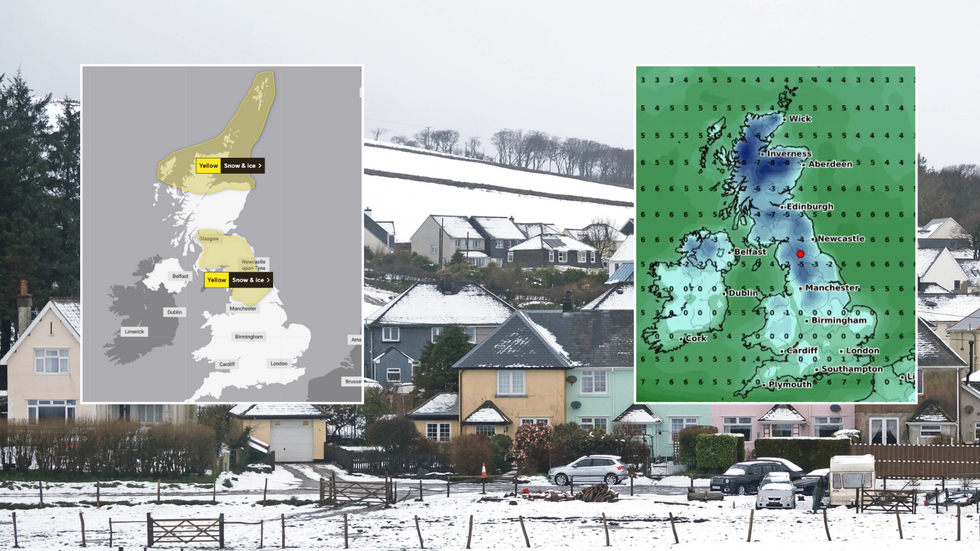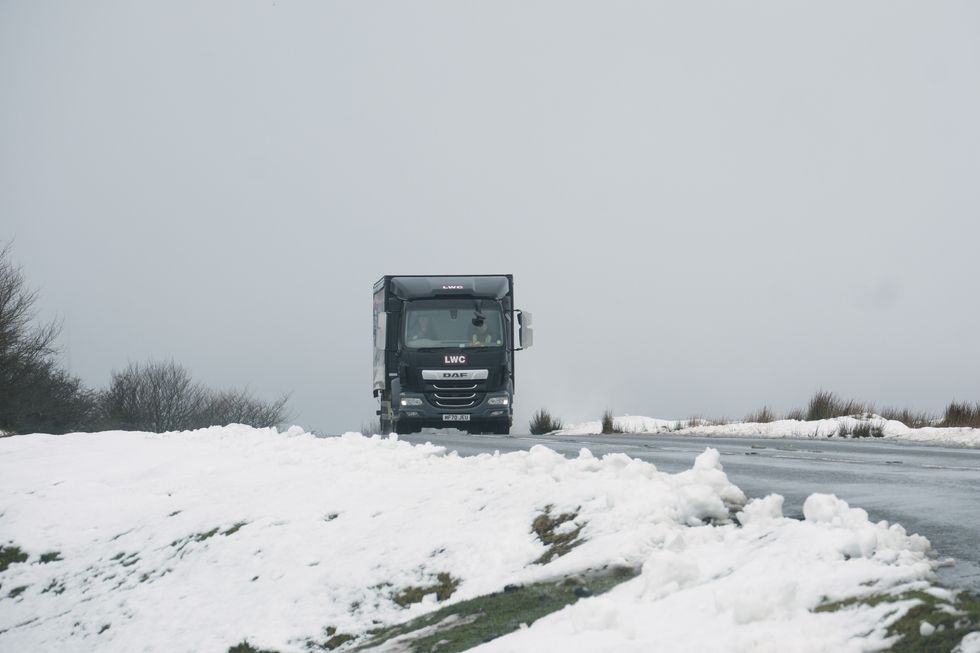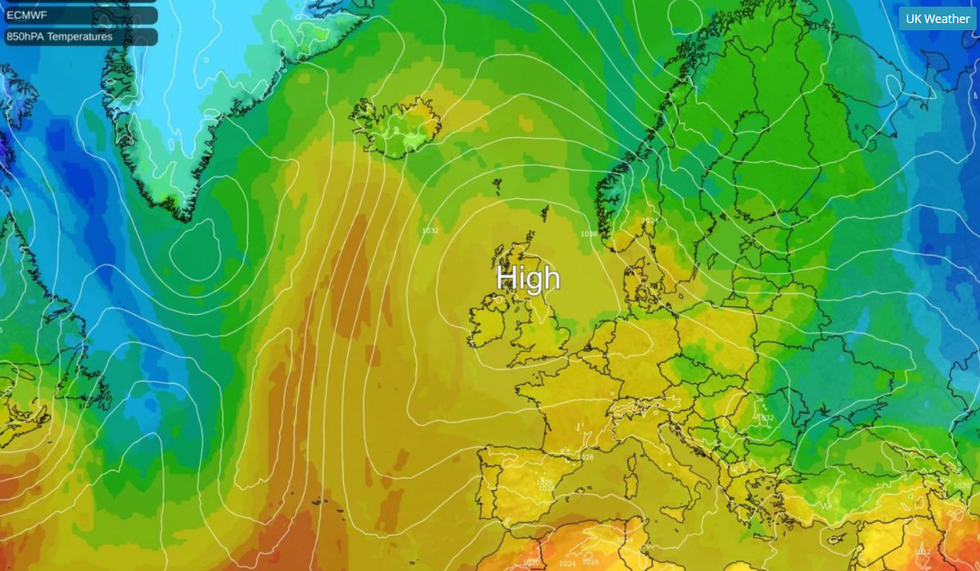UK weather: Parts of Britain issued yellow weather warning for SNOW as temperatures plunge to FREEZING -8C
WATCH NOW: Today's weather forecast
The current bout of high pressure - which has brought with it a misty 'anticyclonic gloom' - will soon be replaced with a low pressure system which will see temperatures drop
Don't Miss
Most Read
Trending on GB News
The Met Office has issued a yellow snow and ice warning across parts of the UK, after warning of “very cold conditions” to come.
Britain is set to be battered by mercury as low as -8C as an early winter spell descends on the nation in the coming days, bringing with it snow to parts of the country.
Rain, sleet, and snow are all part of the flurry of cold and chilly weather set to hit North East and North Yorkshire on Sunday 17, Monday 18, and Tuesday 19.
"Ice and some snow leading to slippery surfaces and difficult travel conditions," the weather office warned.

UK weather: Parts of Britain issued yellow weather warning for SNOW as temperatures plunge to FREEZING -8C
Met Office/PA/WXCharts
They cautioned that slippery roads could result in delays to transport, and people should be mindful of icy patches of pavement that could result in falls.
Two separate warnings have been issued over the three days, one in northern Scotland, and the other covering Edinburgh, Glasgow, Lancashire and Newcastle.
The first alert in northern Scotland begins at 4.00pm on Sunday and ends at 11.00pm on Monday, and the second warning starts at 10.00pm on Monday and finishes 24 hours later.
The Met Office yesterday warned of “arctic air” across swathes of the UK, which could result in disruption across the nation and a white blanket settling.
WEATHER LATEST:
⚠️ Yellow weather warning issued ⚠️
— Met Office (@metoffice) November 15, 2024
Snow and ice across northern parts of Scotland
Sunday 1600 - Monday 1100
Latest info 👉 https://t.co/QwDLMfRBfs
Stay #WeatherAware⚠️ pic.twitter.com/20U9QfKhKg

Britain could see some snow later next week as well
PAThe current bout of high pressure - which has brought with it a misty “anticyclonic gloom” - will soon be replaced with a low pressure system which will see temperatures drop.
Forecaster WX Charts has predicted that Scotland will see the brunt of the freezing weather next week, with multiple regions including Aberdeen seeing a bitter -8C.
England doesn’t fare much better, with Newcastle and the Lake District seeing lows of -4C and -5C respectively on November 23.
The chilly weather could be accompanied by flurries of snow, with the Met Office warning that hazardous windy gusts are also a likelihood.
Met Office Deputy Chief Meteorologist Rebekah Hicks explained: “A notable early winter cold spell will arrive across the north from Sunday and will likely reach all parts of the UK by midweek.
“Temperatures will drop as a northerly airflow develops, bringing in colder Arctic air. This introduces the possibility of snow, initially over high ground in the north from Sunday, with gusty winds also a potential hazard.”
 A high-pressure system over the UK mapped last weekNetweather
A high-pressure system over the UK mapped last weekNetweather“At this stage, there is much uncertainty in what we might see next week, with computer models showing a number of different scenarios.”
Hicks added: “There is a lot of uncertainty in what might happen after Sunday, but there are a number of scenarios which could bring some more widespread rain, along with some hill snow and stronger winds.
“It is possible that there may be some more widespread snowfall across lower ground, but the chance of this for any given region is low at this stage.”
She said that in spite of the uncertainty, it is expected that the UK will “experience a spell of several days of cold, potentially disruptive weather next week”.
Hicks reminded people to stay up to date with the latest weather forecast, with warnings for wintry hazards likely to be issued.
The start of the month has been foggy thanks to a high-pressure system which is typically associated with warmer months.
Because high pressure supports light winds and clear skies, the fog in this period is stubborn to clear, which leads to daytime mist and grey skies – known as an “anticyclonic gloom”.
Some areas in the UK have seen fewer than an hour of sunshine this month thanks to the high-pressure system.








